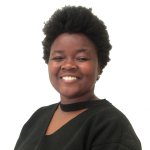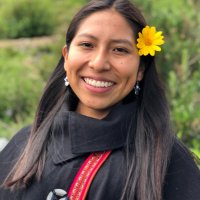
Dayana Blanco Quiroga
Co-founder of the Uru Uru Team
Biography
Dayana Blanco, an Indigenous Aymara woman from Bolivia, is a driving force behind the Uru Uru Team, a grassroots initiative dedicated to restoring Uru Uru Lake in central-western Bolivia. This vital project addresses the multifaceted challenges posed by mining activities, plastic pollution, and climate change, which threaten the lake's ecological integrity and the well-being of surrounding Indigenous communities.
Designated as a Ramsar site, Uru Uru Lake holds immense ecological significance, serving as a crucial habitat for diverse flora and fauna, including various species of flamingos. Moreover, it sustains the livelihoods of more than seven indigenous communities in the region.
Inspired by the global movement of Restoration Stewards, Blanco seized the opportunity to showcase her community's restoration efforts on an international platform. By integrating nature-based solutions, such as floating rafts crafted from recycled materials and adorned with native aquatic plants like totoras, the Uru Uru Team strives to revitalize the lake's ecosystem.
Selected as a Restoration Steward, Blanco is committed to amplifying the voices of her Indigenous community and sharing their journey of environmental stewardship locally and globally. Through various platforms, she aims to document and disseminate their initiatives, including expanding the implementation of floating rafts, organizing community dialogues, and advocating for nonviolent campaigns to halt destructive mining activities. Additionally, the community endeavors to enhance its resilience by nurturing a community garden.
Blanco's participation as a Restoration Steward signifies a collaborative endeavor to restore Uru Uru Lake and foster sustainable coexistence with nature. Together with her fellow stewards, she embarks on a collective journey to safeguard the lake's ecological heritage and uphold the rights of Indigenous communities for a harmonious future.
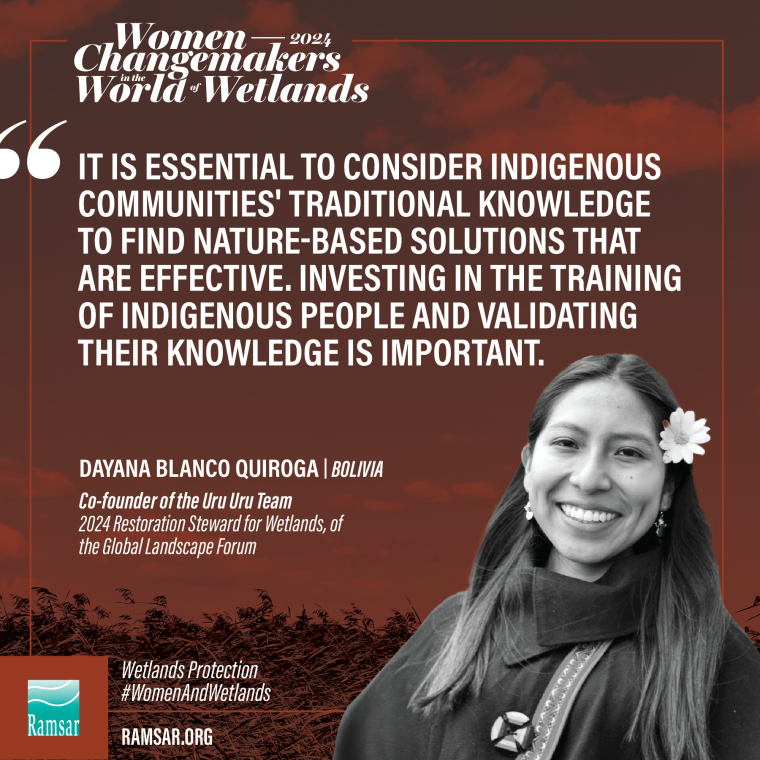
Questions and Answers
What personal experience has shaped or inspired your journey?
My indigenous community has inspired me to lead change by designing eco-friendly, nature-based solutions with Mother Earth. I have memories of how my indigenous community looked like before the mining activities, illegal settlements, and the impact of climate change. In the past, we could see the flamingos fly freely without fear or trying to escape from polluted waters to find a place where they could not be assassinated by drinking water with heavy minerals. I remember how my grandparents could sit to see the sunsets in front of the Uru Uru Lake while building ships or tiny houses by Totora and how I played with my friends trying to catch fish in the Lake.
I remember how we could see our shadows in the crystalline waters of the Uru Uru Lake because they were our mirrors. These cherished memories encouraged me to take action to recover harmony with Mother Earth and to leave a better place for our animals and the next generations.
Who is the influential figure who has inspired your actions, and what specifically about them has been motivating?
My mother is my influential figure because she never puts limits on my dreams. I know as an indigenous woman, sometimes it is hard to assume leadership positions, but when I told my mother the idea to create the Uru Uru Team to restore the Uru Uru Lake, she helped me build the first floating raft with recycled materials, which are the bedrock to put Totoras.
I will never forget that she told me that she did not access higher education because the economic constraints in her family only allowed her to prioritize her brothers' education. She made an extra effort to push me to access higher education and build bridges of opportunities and solutions to respond to the challenges in my indigenous community.
My mother is an example of resilience and perseverance, and she motivated me to dream higher and believe that the work of restoration we are doing in the Uru Uru Lake will leave a spark of hope to the next generations that they can feel change is possible if we find the harmony with the Mother Earth.
In your conservation efforts for wetlands, what key challenge did you face and how has this experience fuelled your dedication to making a positive impact?
In the Uru Uru Team, we faced challenges from the beginning; when we were building the floating rafts, we could not find a way to combine them because we used recycled plastic bottles which were found thrown as rubbish in the Uru Uru Lake. Finding a design that could be durable to place the Totoras was our first challenge. Our second challenge was when planting the Totoras; we could not stand the strong smell of the Uru Uru Lake’s polluted waters. The day after planting the Totoras, we got a stomach ache. Our third challenge was related to the cows that wanted to eat the Totora because they did not have food due to mining activities that had damaged all the soil. Finally, the illegal settlers who wanted to build their houses around the Uru Uru Lake tried to destroy our floating rafts.
We decided to face all these challenges with the unity of all the members of our community. Our elders gave some ideas for a good floating raft design. The indigenous women and sisters from our community decided to found the community garden, which generates income to buy workwear and be equipped and protected to plant Totoras. We built fences to cover the Totoras and prevent cows from eating them. We organized ourselves into groups in the community to protect our Totoras from illegal settlers. All this work we did as a community, encouraged me to continue with resilience and motivation above the hardships we faced.
All women in this category : Wetland Protection
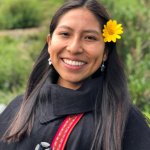
Dayana Blanco Quiroga
Co-founder of the Uru Uru Team
More information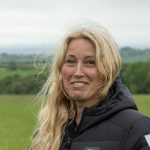
Sacha Dench
Founder of Conservation Without Borders Ambassador for the UN Convention on Migratory Species.
More information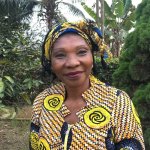
Cecile Ndjebet
Founder Cameroon Ecology, and Co-founder African Women’s Network for Community Management of Forests.
More information